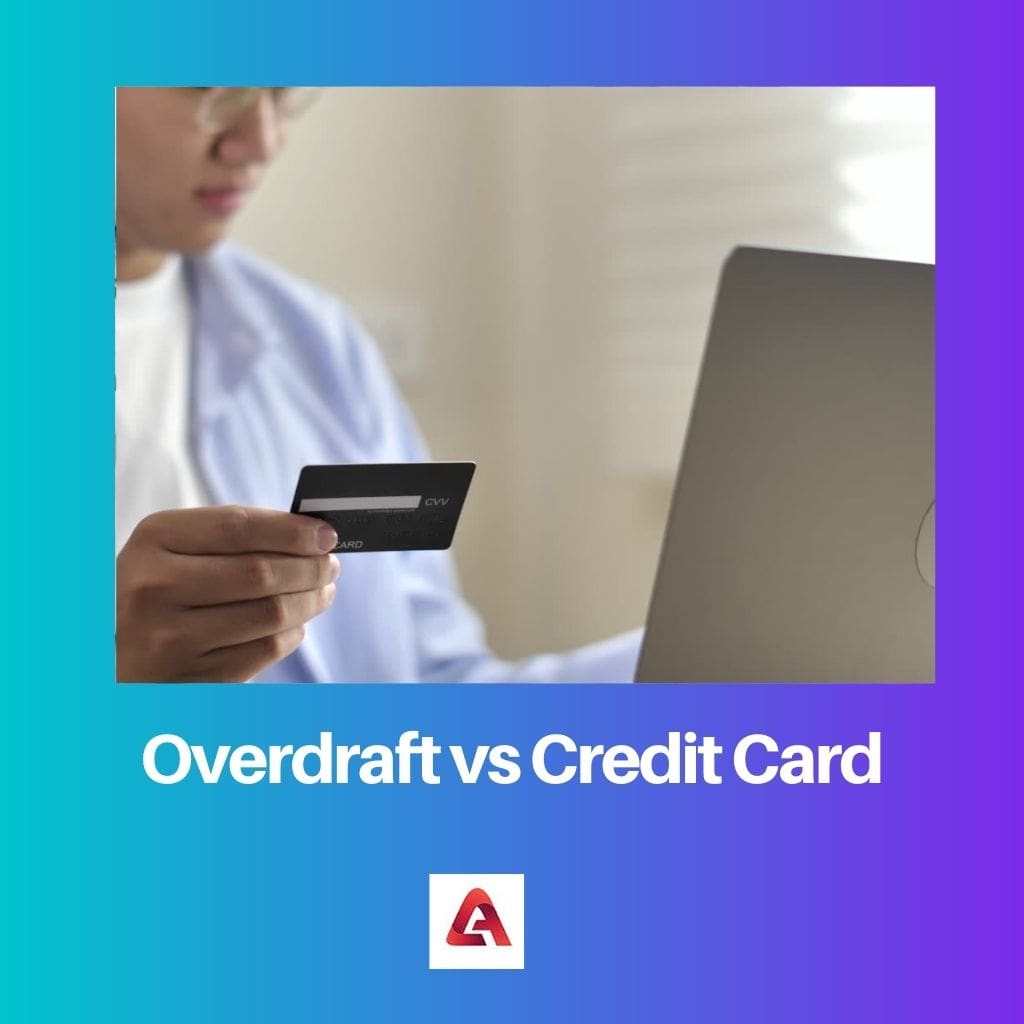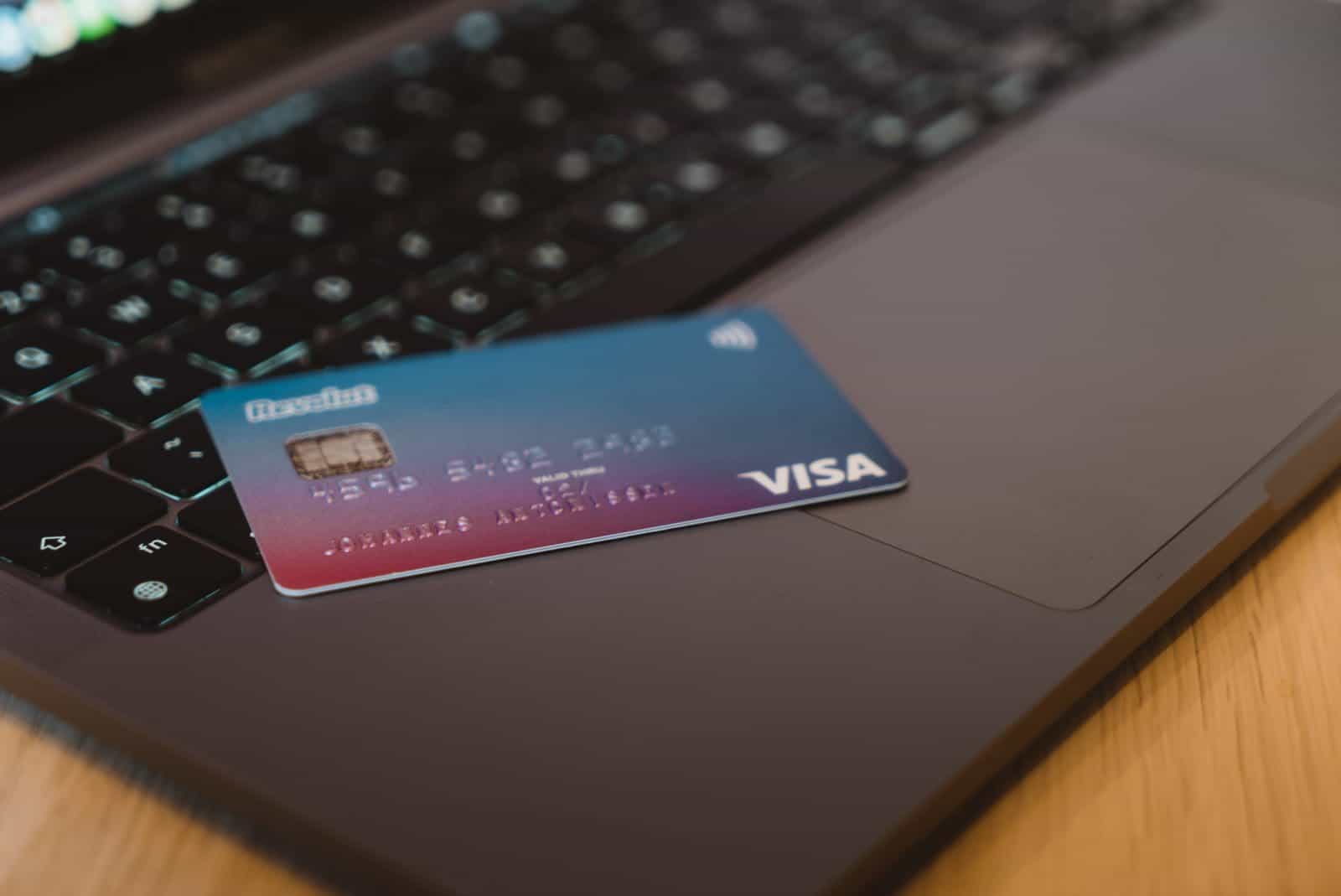Overdraft provides a temporary negative balance in a bank account, with higher interest rates. A credit card allows borrowing up to a predefined limit, with interest charged on the outstanding balance if not paid in full monthly. Both offer short-term financing but differ in terms of access and cost.
Key Takeaways
- An overdraft is a banking facility that allows account holders to withdraw more money than they have in their account up to a predetermined limit. At the same time, a credit card is a financial product that enables users to borrow money from a credit line to make purchases or obtain cash advances.
- Overdrafts and credit cards provide access to funds when needed and can help manage short-term cash flow issues, but credit cards are specifically designed for making transactions. In contrast, overdrafts are linked to a bank account and accessed through regular banking channels.
- Overdrafts and credit cards have different fee structures and interest rates. Credit cards offer interest-free grace periods for new purchases if the balance is paid monthly.
Overdraft vs Credit Card
The difference between an Overdraft and a Credit Card is that the providers charge you an annual fee, whereas overdraft charges only apply if your overdraft is above a specific limit.

Comparison Table
| Feature | Overdraft | Credit Card |
|---|---|---|
| Definition | An extension of your checking account that allows you to spend more money than you have available, up to a limit | A revolving line of credit issued by a bank or credit union that allows you to borrow money and make purchases |
| Purpose | Covers accidental overspending or small cash shortfalls | Finances larger purchases or ongoing expenses |
| How it works | Bank automatically advances funds to cover spending beyond your account balance, incurring an overdraft fee | Merchant provides goods or services, you pay later with interest and potential fees |
| Repayment | Pay back the borrowed amount plus fees within a short period (next business day) | Make minimum payments monthly, with remaining balance accruing interest |
| Interest & Fees | Typically high overdraft fees per transaction, sometimes daily fees | Varies depending on card issuer and creditworthiness, high APR and potential annual fees |
| Impact on credit score | Generally doesn’t affect credit score unless chronically overdrawn and unpaid | Regular late payments or exceeding credit limit can negatively impact score |
| Approval | Usually offered to existing checking account holders, may require good banking history | Requires credit card application and credit check |
| Convenience | Can be convenient for small, unexpected expenses | More convenient for larger purchases and online shopping |
| Flexibility | Limited repayment flexibility | More flexible repayment options, can carry a balance over time |
| Overall cost | Can be very expensive due to high overdraft fees | Can be expensive if not managed responsibly, but potential rewards and lower interest rates for good credit |
What is Overdraft?
An overdraft is a financial arrangement where a bank allows an account holder to withdraw more money than their account balance, creating a temporary negative balance.
Key Features:
- Flexible Borrowing: Account holders can access additional funds, up to an agreed-upon overdraft limit, providing flexibility in managing short-term financial needs.
- Interest Charges: Interest is charged on the overdraft amount utilized, and the rates may be higher than other forms of credit.
- Pre-approval: Overdrafts are pre-approved based on the account holder’s credit history and banking relationship, making them readily available when needed.
- Repayment Terms: Overdrafts are repayable on demand, but some may have specific terms for repayment. Repaying the overdraft restores the account to a positive balance.
- Fees: In addition to interest charges, banks may impose fees for maintaining an overdraft facility, whether it is used or not.
- Common Usage: Overdrafts are commonly used for covering short-term expenses, unexpected bills, or managing cash flow fluctuations.

What is Credit Card?
A credit card is a financial tool that enables users to make purchases or withdraw cash on credit, up to a predetermined limit. It is issued by banks or financial institutions, offering a convenient and widely accepted means of payment.
Key Features of Credit Cards
- Credit Limit: Each card comes with a predefined credit limit, representing the maximum amount a cardholder can borrow.
- Interest Rates: Credit cards may have variable interest rates, applied to the outstanding balance if not paid in full by the due date.
- Minimum Payments: Cardholders are required to make minimum monthly payments, a percentage of the outstanding balance.
- Rewards and Perks: Many credit cards offer rewards programs, cashback, or travel perks based on the amount spent.
- Fees: Various fees may apply, including annual fees, late payment fees, and cash advance fees.
- Grace Period: Some cards provide a grace period during which no interest is charged if the full balance is paid by the due date.
Advantages of Credit Cards
- Convenience: Credit cards offer a convenient and secure way to make transactions globally.
- Build Credit History: Responsible credit card use can contribute to building a positive credit history, impacting future borrowing opportunities.
- Emergency Fund: Credit cards can serve as a financial backup for unexpected expenses or emergencies.
Considerations and Caution
- Interest Costs: Failing to pay the full balance on time can result in high-interest charges, leading to debt accumulation.
- Credit Score Impact: Late payments or high credit utilization can negatively affect the cardholder’s credit score.
- Financial Discipline: Responsible usage requires disciplined spending and timely payments to avoid financial pitfalls.

Main Differences Between Overdraft and Credit Card
- Nature of Facility:
- Overdraft: Provides a temporary negative balance in a bank account, allowing withdrawals exceeding the available balance.
- Credit Card: Allows borrowing up to a predetermined limit, separate from a bank account, for making purchases or cash withdrawals.
- Access:
- Overdraft: Linked directly to a bank account, and the overdraft limit is determined by the account holder’s relationship with the bank.
- Credit Card: Issued by banks or financial institutions as a standalone credit facility with a predefined credit limit.
- Interest and Repayment:
- Overdraft: Typically incurs higher interest rates, and repayments are made based on the negative balance, with flexibility.
- Credit Card: Involves interest charges on the outstanding balance if not paid in full monthly, and minimum payments are required.
- Usage:
- Overdraft: Primarily used for covering short-term liquidity gaps in a bank account.
- Credit Card: Used for making purchases, online transactions, and cash withdrawals, offering a broader range of financial flexibility.
- Cost Structure:
- Overdraft: May have fees and higher interest rates, especially for unauthorized overdrafts.
- Credit Card: Involves various fees (annual fees, late payment fees) and interest charges, depending on the card terms and usage patterns.
- Associated Accounts:
- Overdraft: Directly linked to a specific bank account.
- Credit Card: Operates independently of a bank account, with a separate billing cycle and statement.

- https://brill.com/view/journals/flc/6/3/article-p369_2.xml
- https://www.law.gmu.edu/assets/files/publications/working_papers/1360.pdf

The information is presented in a well-organized and thought-provoking manner. It effectively highlights the key differences between overdraft and credit card, making it a compelling read.
I couldn’t agree more. The post is not only informative but also engaging, catering to readers seeking in-depth knowledge about financial instruments.
Indeed, the insightful content of this post ensures that complex financial concepts are accessible to a wide audience. It’s a commendable effort.
It’s refreshing to read a post that delves into the financial intricacies of overdraft and credit card. The clarity and depth of analysis are commendable.
Absolutely, the author’s comprehensive coverage of the topic ensures that readers gain a thorough understanding of the nuances between overdraft and credit card. Well done!
I found this post to be quite insightful. It sheds light on the advantages and disadvantages of overdrafts and credit cards, helping readers make informed financial decisions.
I share the same sentiment. The comparison table offers a comprehensive overview, making it easier for readers to evaluate the differences between these financial options.
Informative information! I appreciate the detailed comparison between overdraft and credit card. It helps to weigh the pros and cons of each financial option.
Couldn’t agree more. The comparison table is particularly useful in understanding the features and differences between overdraft and credit card. It’s a well-structured post.
This article provides a comprehensive overview of overdrafts and credit cards. It’s a valuable read for anyone looking to gain a deeper understanding of these financial tools.
I concur. The detailed explanations and critical analysis make this post an enriching read, especially for those interested in financial management.
Great post! It’s a comprehensive and clear explanation of the difference between overdraft and credit card. This is a must-read for anyone who wants to have a better understanding of these financial facilities.
I agree, the post provides a thorough analysis of overdrafts and credit cards. It’s well-written and informative.
Exactly! This post really clarifies the nuances between overdraft and credit card, and it’s a valuable resource for people looking to manage their finances better.
I’m skeptical about some of the points made in this post regarding overdrafts and credit cards. The author’s analysis seems biased and fails to consider certain important aspects.
I respectfully disagree. The post presents factual information and doesn’t appear to be biased. Perhaps we can engage in a constructive discussion to address any concerns.
I can understand your concerns, but it would be more productive to provide specific examples or counterpoints to support your argument.
I deeply appreciate the in-depth comparison between overdraft and credit card. The balanced insights and clarity of information make this post an enlightening guide for readers.
Absolutely. The comprehensive coverage of various aspects of overdrafts and credit cards demonstrates the author’s proficiency in explaining complex financial concepts.
This post provides a clear and concise comparison between overdraft and credit card. It’s a valuable resource for anyone seeking to make informed decisions about their financial choices.
Absolutely agree. The key features and explanations are well-articulated and make complex financial concepts easy to understand for readers.
The post offers a detailed and well-explained comparison between overdraft and credit card. It serves as an excellent resource for individuals seeking to enhance their financial literacy.